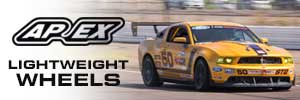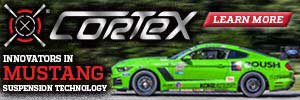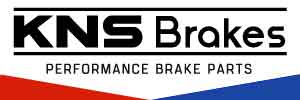Thanks man, where are you locatee?
- Welcome to the Ford Mustang forum built for owners of the Mustang GT350, BOSS 302, GT500, and all other S550, S197, SN95, Fox Body and older Mustangs set up for open track days, road racing, and/or autocross. Join our forum, interact with others, share your build, and help us strengthen this community!
You are using an out of date browser. It may not display this or other websites correctly.
You should upgrade or use an alternative browser.
You should upgrade or use an alternative browser.
S197 Smokey_Vol Build Thread Profile - S197 Mustangs
- Thread startersmokey_vol
- Start date
This site may earn a commission from merchant affiliate links, including eBay, Amazon, and others.
More options
Who Replied?- Thread starter
- #22
Right outside Nashville.Thanks man, where are you locatee?
Edit: I suppose that's quite broad if you're familiar with the area. NE of Nashville, not far from KY state line.
- Thread starter
- #23
Dave, thanks for the reply. I think I'll go with DOT 5.1 and track-specific pads before deflectors/hoses. Thanks!I'd look at 3 things related to braking for your next track day - 1) cooling for the brakes - maybe just "deflectors" instead of hoses, 2) fresh high-quality DOT4 or DOT5.1 (NOT DOT5) fluid with a high dry boiling point, and 3) brake pads with a higher working temperature than street pads.
Hey Smokey, sounds like you had an awesome first track day! I agree with DaveW, good call on shutting it down once you were fatigued.
If you were getting a soft pedal on your first track day and you have already swapped to DOT4, then your issue is likely the oem pads overheating. My suggestion would be just upgrade the pads, the DOT 4 should be more than adequate for hpde. I've been running Motul DOT 4 for five seasons and have never boiled the fluid. Also, you might want to look into the Schroth quick fit, I ran them my first couple seasons and it really did hold me into the stock seat really well.
If you were getting a soft pedal on your first track day and you have already swapped to DOT4, then your issue is likely the oem pads overheating. My suggestion would be just upgrade the pads, the DOT 4 should be more than adequate for hpde. I've been running Motul DOT 4 for five seasons and have never boiled the fluid. Also, you might want to look into the Schroth quick fit, I ran them my first couple seasons and it really did hold me into the stock seat really well.
Dave_W
Cones - not just for ice cream
There are really two very different kinds of brake fade, and you can tell which one you're suffering from by the symptoms.
- Pad fade - The car doesn't slow down as fast as it should, but the brake pedal is still firm at the usual height. You have overheated the brake pad compound. Damage ranges from minimal where a "cool lap" can recover braking effectiveness (until you overheat them again), to severe where the structural integrity of the pad compound is compromised and the pad material "crumbles" off the backing plate. Solution is to use a pad material with higher heat tolerance and/or cool the rotors. Typically, compounds with higher heat tolerance perform worse at cold/ambient temperatures, so you end up changing between "street pads" and "track pads" for events. Depending on brand and compound, the two may not be compatible, requiring either cleaning & bedding of the rotors with each change, or dedicated rotors sets.
- Fluid fade - The car doesn't slow down as fast as it should, and the brake pedal is soft, spongy, and/or engages noticeably further in its travel (or "goes to the floor"). The brake fluid in the calipers has boiled, turning an incompressible fluid into a compressible vapor. The vapor will mostly condense on cooling, but the fluid will lose performance overall. Solutions are to make sure the brake fluid is fresh (brake fluid absorbs moisture from the air which reduces its boiling point - see dry vs "wet" boiling points in fluid specs), use fluid with a higher dry boiling point, and/or cool the brakes/calipers better. Also, you can insulate the caliper pistons and the fluid behind them from the heat of the rotor with things like titanium shims from site sponsor Optimum Performance, or using a thermal barrier coating on the pistons.
Last edited:
Yes I am. My son was in Hendersonville and just bought a house in Portland.Right outside Nashville.
Edit: I suppose that's quite broad if you're familiar with the area. NE of Nashville, not far from KY state line.
Fabman
Dances with Racecars
- 6,553
- 8,204
- Exp. Type
- W2W Racing
- Exp. Level
- 20+ Years
Perfectly explained.There are really two very different kinds of brake fade, and you can tell which one you're suffering from by the symptoms.The DOT3, DOT4, and DOT5.1 ratings give regular people a general idea of brake fluid performance, but track enthusiasts should really look at the dry boiling points of the specific brake fluids they're considering using.
- Pad fade - The car doesn't slow down as fast as it should, but the brake pedal is still firm at the usual height. You have overheated the brake pad compound. Damage ranges from minimal where a "cool lap" can recover braking effectiveness (until you overheat them again), to severe where the structural integrity of the pad compound is compromised and the pad material "crumbles" off the backing plate. Solution is to use a pad material with higher heat tolerance and/or cool the rotors. Typically, compounds with higher heat tolerance perform worse at cold/ambient temperatures, so you end up changing between "street pads" and "track pads" for events. Depending on brand and compound, the two may not be compatible, requiring either cleaning & bedding of the rotors with each change, or dedicated rotors sets.
- Fluid fade - The car doesn't slow down as fast as it should, and the brake pedal is soft, spongy, and/or engages noticeably further in its travel (or "goes to the floor"). The brake fluid in the calipers has boiled, turning an incompressible fluid into a compressible vapor. The vapor will mostly condense on cooling, but the fluid will lose performance overall. Solutions are to make sure the brake fluid is fresh (brake fluid absorbs moisture from the air which reduces its boiling point - see dry vs "wet" boiling points in fluid specs), use fluid with a higher dry boiling point, and/or cool the brakes/calipers better. Also, you can insulate the caliper pistons and the fluid behind them from the heat of the rotor with things like titanium shims from site sponsor Optimum Performance, or using a thermal barrier coating on the pistons.
Great explanation DaveW. On second read through I agree with you he may have boiled the brakes. If he used a cheap Autozone DOT 4 with a lower boiling point or his system is still contaminated with DOT 3 and/or air, then this is the likely the case. However, a pad compound upgrade is a good idea regardless.There are really two very different kinds of brake fade, and you can tell which one you're suffering from by the symptoms.The DOT3, DOT4, and DOT5.1 ratings give regular people a general idea of brake fluid performance, but track enthusiasts should really look at the dry boiling points of the specific brake fluids they're considering using.
- Pad fade - The car doesn't slow down as fast as it should, but the brake pedal is still firm at the usual height. You have overheated the brake pad compound. Damage ranges from minimal where a "cool lap" can recover braking effectiveness (until you overheat them again), to severe where the structural integrity of the pad compound is compromised and the pad material "crumbles" off the backing plate. Solution is to use a pad material with higher heat tolerance and/or cool the rotors. Typically, compounds with higher heat tolerance perform worse at cold/ambient temperatures, so you end up changing between "street pads" and "track pads" for events. Depending on brand and compound, the two may not be compatible, requiring either cleaning & bedding of the rotors with each change, or dedicated rotors sets.
- Fluid fade - The car doesn't slow down as fast as it should, and the brake pedal is soft, spongy, and/or engages noticeably further in its travel (or "goes to the floor"). The brake fluid in the calipers has boiled, turning an incompressible fluid into a compressible vapor. The vapor will mostly condense on cooling, but the fluid will lose performance overall. Solutions are to make sure the brake fluid is fresh (brake fluid absorbs moisture from the air which reduces its boiling point - see dry vs "wet" boiling points in fluid specs), use fluid with a higher dry boiling point, and/or cool the brakes/calipers better. Also, you can insulate the caliper pistons and the fluid behind them from the heat of the rotor with things like titanium shims from site sponsor Optimum Performance, or using a thermal barrier coating on the pistons.
Bill Pemberton
0ld Ford Automotive Racing Terror
If you were using a quality DOT 4 like Motul 600 , for instance , that should be fine , and since it was a first HPDE was your concern because the pedal pressure felt less firm as you went along, yet the car still stopping securely. Just asking as some pedal feeling ( say a bit softer ) can be quite normal with some pads. Either way, always good to cease if things feel odd and another item I would suggest adding , if you have not already, is some brake ducting. I have found some students who tend to brake harder due to the speed they attain, or others who just tend to drag the brakes too long, that the pedal feel change will occur due to brake rotor heat and lack of airflow. Just another item to add to your list, but thankfully Vorshlag makes a great brake ducting plate that works well if you don't want to go the duct hose route.
Lots of good info from all , but pads, if stock or a non track compound can be an obvious source of your brake pedal feel and possible loss of full brake activation. DaveW gave you plenty of solid information concerning technical data and keep us all in the loop for your next assault on the asphalt.
Lots of good info from all , but pads, if stock or a non track compound can be an obvious source of your brake pedal feel and possible loss of full brake activation. DaveW gave you plenty of solid information concerning technical data and keep us all in the loop for your next assault on the asphalt.
Welcome! Get ready to spend some money. This dam forum makes you do that 
Love the build so far!
Love the build so far!













